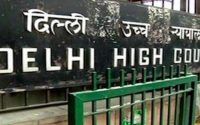Nirbhaya case: Agonising wait must end as finality of death penalty is important.
source:- tribuneindia.com
Death penalty has been held to be a valid form of punishment in India by the Supreme Court. But can convicts inordinately delay their execution by using procedural loopholes in the law?
The question is being asked in view of delay in execution of the four convicts in the 2012 Nirbhaya gang rape and murder case. The issue involves significant questions of law regarding the rights of convicts, victims and the larger society.
So far as the delay on the part of the State is concerned, the Supreme Court has already ruled that a convict can’t be kept waiting for the gallows and inordinate delay in his/her execution is a ground for commuting the death penalty to life sentence.
In Jagdish versus State of Madhya Pradesh (2009), the Supreme Court ruled that the government’s failure to decide a mercy plea within a reasonable timeframe can be a ground for commuting the death penalty to life imprisonment. “We must…say with the greatest emphasis that human beings are not chattels (slaves) and should not be used as pawns in furthering some larger political (goal) or government policy”, a Bench headed by Justice HS Bedi said.
The State’s failure in taking expeditious decision amounted to violation of condemned prisoners’ right to live with dignity guaranteed under Article 21 of the Constitution, it had said.
“There can be no justification for the execution of a prisoner after much delay…the cruelty of capital punishment lies not only in the execution itself and the pain incident thereto, but also in the de-humanising effects of the lengthy imprisonment prior to execution…What makes it worse for the prisoner is the indifference and ennui which ultimately develops in the family, brought about by a combination of resignation, exhaustion, and despair,” the top court had said.
Further, in Shatrughan Chauhan’s case (2014), a three-judge Bench headed by Justice P Sathasivam said when there is “unreasonable, unexplained and exorbitant” delay in disposing of mercy petitions, courts are duty-bound to step in. The top court had said there should be a gap of 14 days from the date of rejection of mercy petition and execution of a death-row convict.
By its judicious verdicts, the Supreme Court has managed to check arbitrariness on the part of the State. However, with the four convicts in the Nirbhaya case delaying their execution by strategically availing of their legal and constitutional remedies one by one, the Centre has moved the Supreme Court, saying the court’s rulings in death penalty cases are convict-centric and that it should lay down a set of victim-centric guidelines.
The Centre has urged the top court “to clarify and direct that if the convict of death sentence wants to file mercy petition, it would be mandatory for a convict of death sentence to do so only within a period of seven days from the date of receipt of death warrant issued by the competent court.”
It’s not an easy task to get a guilty verdict in a capital crime. Originally, for offences where the death penalty was an option, Section 367(5) of the Code of Criminal Procedure (CrPC) 1898 required courts to record reasons where they decided not to impose death sentence. In 1955, Parliament repealed Section 367(5), CrPC 1898, significantly altering the position of the death sentence. The death penalty was no longer the norm, and courts did not need special reasons for why they were not imposing the death penalty in cases where it was a prescribed punishment.
When the CrPC was re-enacted in 1973, Section 354(3) required courts to record special reasons for awarding death sentence. Further, Section 366 of CrPC mandates that the convict shall not be executed unless the death sentence is confirmed by the high court concerned.
In case the convict’s death sentence is confirmed by the high court, he/she can challenge it before the Supreme Court in appeal. After dismissal of his appeal, he has the option of filing a review petition and then a curative petition. Thereafter, the convict can file mercy petition before the president under Article 72 of the Constitution. Even the dismissal of mercy petition by the President can be challenged before the Supreme Court.
As pointed out by the Centre, it’s not that the convict doesn’t get enough opportunity to prove his/her innocence.
But the real question is about finality of death penalty. Noting that finality of death penalty was extremely important; Chief Justice of India SA Bobde had last month said a condemned prisoner should not be under impression that it was an open-ended question.
It would be in the interest of both the convicts and the victims, if the top court fixes a reasonable timeframe for death-row convicts to exhaust their legal remedies; lest it becomes an endless agonising wait for both sides, besides the society at large which is a legitimate stakeholder in the entire process.
But binding the President in a timeframe to decide mercy petitions would not be advisable as the Executive is supposed to take care of situations and circumstances — including law and order — that may be beyond the imagination of courts.
One would agree with the top court’s opinion in Shatrughan Chauhan’s case that “exercising of power (of clemency) under Article 72/161 by the President or the Governor is a constitutional obligation and not a mere prerogative. Considering the high status of office, the Constitutional framers did not stipulate any outer time limit for disposing of the mercy petitions under the said Articles, which means it should be decided within reasonable time.”



